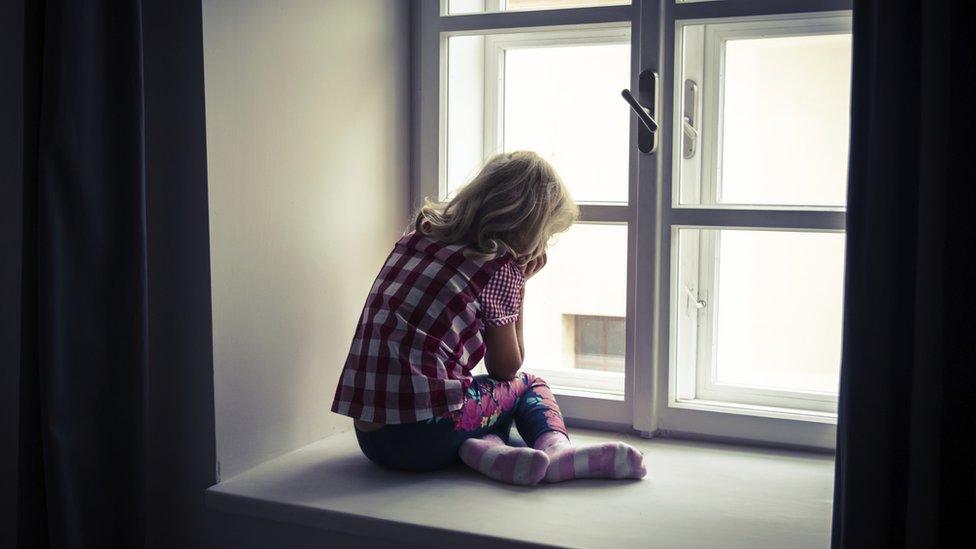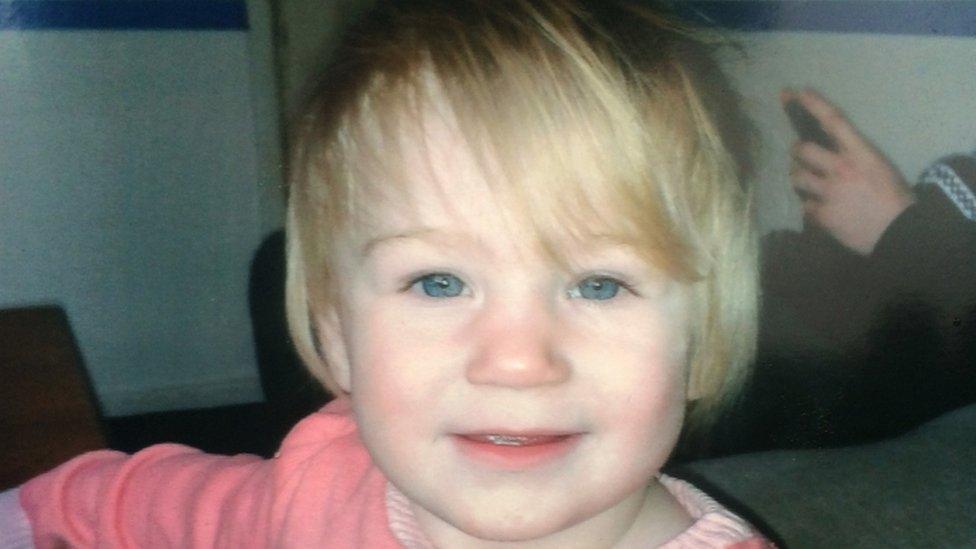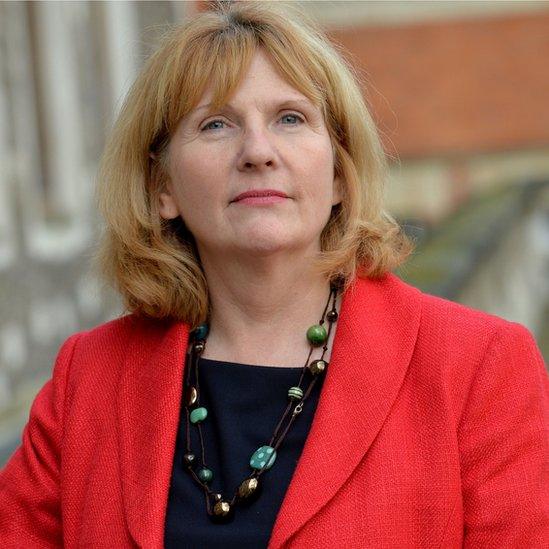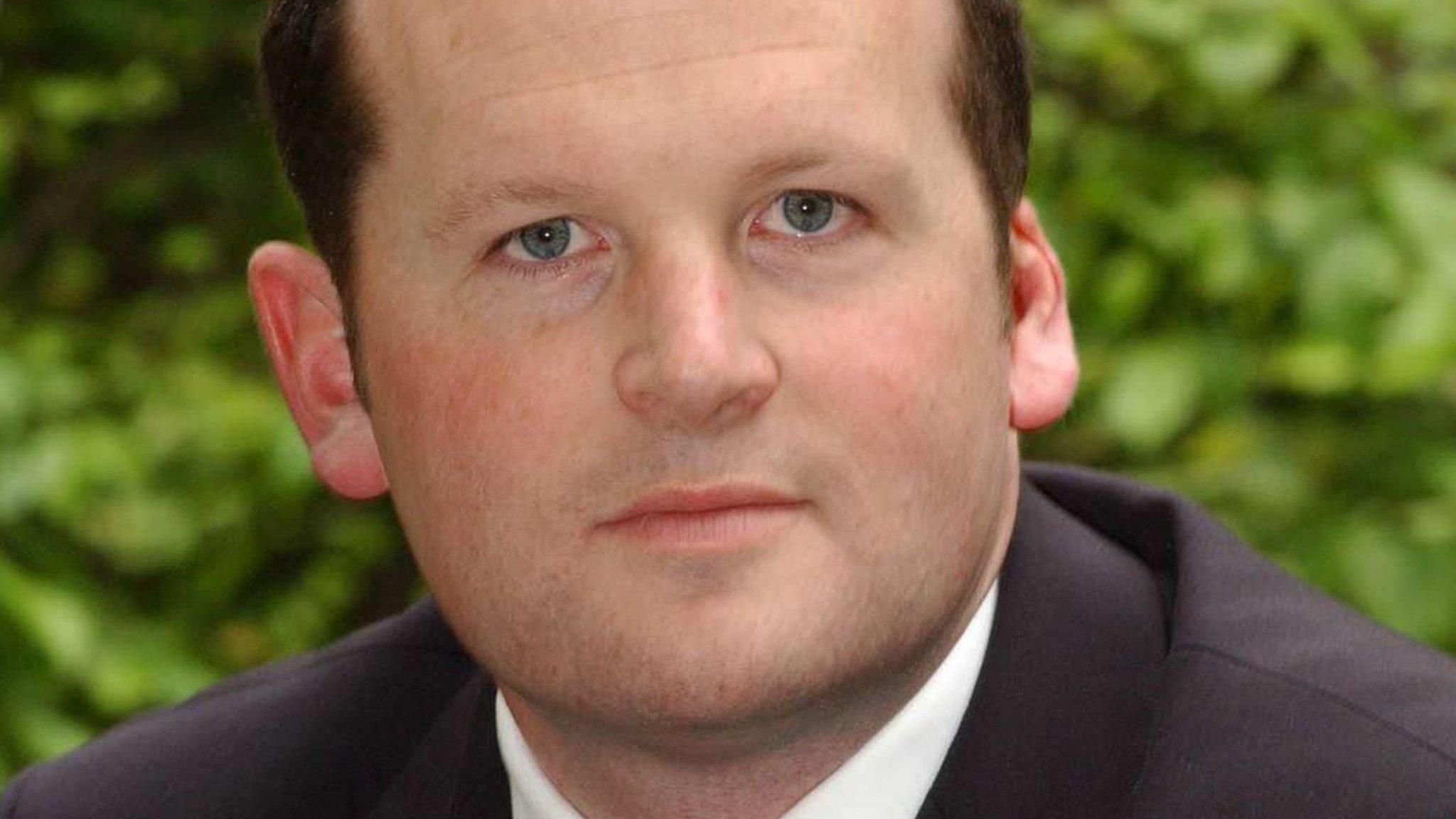England children's social worker posts almost 20% vacant
- Published

Almost as many people left children's social work jobs as started them in 2015
Almost a fifth of all children's social worker jobs in England are vacant, despite a rise in recruitment.
Councils are relying on agency workers to cover nearly 4,000 out of 5,500 otherwise empty posts.
Social workers say they are under constant pressure because of media coverage and criticism of their role in high profile cases such as the death of Ayeeshia Jane Smith.
Local authorities say social workers leave for better pay as agency staff.
And the Department for Education (DFE) said it was investing £100m to recruit graduates and professionals.
But the NSPCC says social workers are facing an increasing workload, including from a 72% rise in referrals from ChildLine. It urged councils not to allow vacancies to result in children slipping "through the net".
There were 26,500 full time equivalent posts filled by children's social workers at the end of September 2015, 1,880 more than the year before. Yet a further 5,470 were vacant.
The number of agency workers filling vacant posts was equivalent to more than double the total number of employed children's social workers in the North East.
Official figures showed there were 4,400 new starters as children's social workers in English councils between September 2014 and September 2015. Over the same period, 4,200 people left. The picture varies from council to council.
The DFE said part of the increase "can be explained by improved data quality" with some councils now including management roles that were not in previous years' figures. The rise in vacancies "is an unexpected increase" and may be down to councils not having previously counted vacancies covered by agency workers.
Agency pay rates
The figures show that Havering in east London saw the biggest percentage fall in the number of social workers, down from 86 to 50.
It meant the borough went from one permanent social worker for every 13 children in need to one for every 34, with the council using agency staff to bring the rate to one social worker for every 16 children.
Tim Aldridge, head of children's services, said it had been happening to councils across England.
"This is for several reasons including the public sector pay freeze seeing only 1% increases since 2010, compared to the salaries on offer to agency workers in the range of £30 an hour or more," he said.
At Northamptonshire County Council, 50% of posts were being filled by agency workers.
A spokesman said the figure had fallen since the statistics were compiled through a scheme to attract new social workers.
"We want to increase the number of permanent children's social workers but this will take time," he said.
The official figures also showed more than a quarter of all children's social workers in England had less than two years of service. Just 9% have been in service at their local authority more than 20 years.
Get the data here, external
A social worker in the North East, the author of the Social Work Tutor, external blog, with 139,000 followers on Facebook, says staff are having to spend too much time on paperwork and not enough with families.
Speaking on condition of anonymity, he said: "It's a revolving door. Social workers reach their peak after about two or three years. People come in, they burn out and they leave.
"Every local authority is so scared of having another Baby P, external (Peter Connelly) or Ayeeshia Smith. The view is that unless there's paperwork to prove it, it didn't happen. And that leads to accountability being placed above the job of actually working with people. It puts social workers under huge pressure."
'Too little time'
Writing about the Ayeeshia Jane Smith case on Facebook, in a post shared more than 55,000 times, he added: "The media seeks to pin the blame for this harrowing tale on social workers.
"We are told that we should have known this would happen, that we should have done more to prevent this tragedy. We are told that we are to blame for this little girl's death and there are lessons to be learned.
"But these are lessons we have known for decades. We have too many cases, too little time and far fewer resources than we need."

Ayeeshia Jane Smith died from a tear to the heart in May 2014
A serious case review is being carried out by the Derbyshire safeguarding children's board into the death of 21-month-old Ayeeshia Jane Smith. She died from a fatal heart laceration, an injury usually found in crash victims, and had suffered other injuries including a bleed on the brain in the months before she was killed.
Derbyshire's children's services were rated good by Ofsted in their last inspection in 2013.

Maris Sratulis of the British Association of Social Workers says there is "increasing pressure" to predict risk
An NSPCC spokesman said: "Social workers play a vital role in protecting children in communities up and down the country and whilst high profile cases may be adding to the pressure felt by some in the profession, they also emphasise the essential role that social workers can play in preventing tragedies occurring."
He said last year ChildLine made 3,714 referrals to local authorities - a 72% increase on the previous year.
Maris Stratulis, England manager at the British Association of Social Workers, said: "There is increasing pressure on local authority social workers to predict risk, which adds to the stress of the work. At the same time, more families are struggling because of austerity and there have been cuts to preventative services, all of which adds further to the pressure and workload of a social worker."
Claude Knights of the charity Kidscape said there had been "avoidable child deaths" because recommendations from serious case reviews were not being implemented.
Calling for a government task force to address the challenges, she said: "A great concern is that when the alarm bells are ringing loudly potentially life saving decisions are not made more swiftly."
A Department for Education spokesman said: "Excellent social workers help transform lives, which is why we are committed to recruiting and retaining the very best into the profession. We need more high quality social workers who have the skills and confidence to make the decisions and judgements which are in the child's best interests.
"That's why we have invested £100m in programmes to recruit the best and brightest graduates and professionals into the sector."
- Published11 April 2016

- Published24 January 2014
